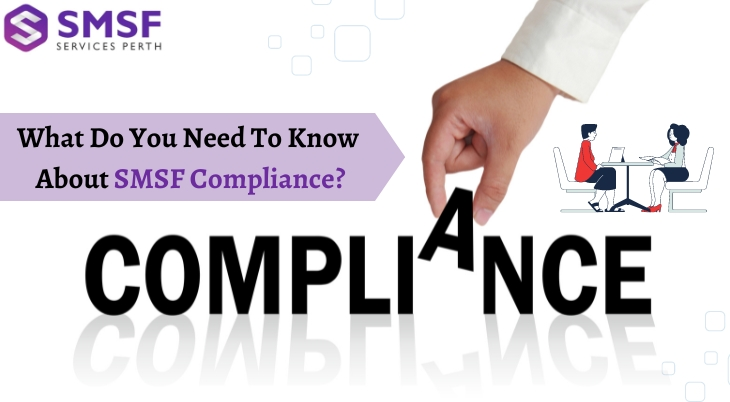
The compliance and regulation of Self-Managed Superannuation Funds (SMSFs) is a complex and ever-changing area. The Australian Taxation Office (ATO) is responsible for running SMSFs and sets out strict rules and guidelines. Breach of these rules can result in hefty penalties.
To ensure compliance, trustees must understand their obligations and keep up to date with any changes. It can be daunting, particularly as the ATO frequently updates its guidance.
What is an SMSF?
A Self-Managed Superannuation Fund (SMSF) is a superannuation fund where the members are also the trustees. They are responsible for managing the fund and making all investment decisions.
You can tailor your investments to suit your retirement goals and invest only in the products offered by a superannuation fund. An SMSF can have up to four members, all of whom must be trustees. The trustees of an SMSF can be natural persons or corporate trustees.
A corporate trustee is a company that acts as the trustee of an SMSF. The members of an SMSF must be siblings, spouses, parents, children, or grandparents. SMSF compliance advice Perth creates a helpful and informative record to keep you in order.
The main advantage of having an SMSF is that you have complete control over your super. You can choose how you invest and you’re not limited to investing only in the products offered by a superannuation fund. It can provide greater flexibility when it comes to estate planning and succession planning.
The main disadvantage of having an SMSF is that it requires a lot of time and effort to manage. The trustees of an SMSF are responsible for complying with super laws and managing the fund.

If you’re thinking about setting up an SMSF, you should speak to an SMSF expert or accountant to discuss whether an SMSF is right for you.
Who Regulates SMSF?
The Australian Government’s tax office manages SMSFs. The ATO is responsible to confirm that SMSF Services Perth comply with the law. The ATO will audit SMSFs to check that they comply with the law and to make sure that they’re complying with the super laws.
It includes making sure that:
- It provide retirement benefits for members
- This is run by trustees who are fit and proper people
- It is not engage in any prohibited transactions
- Comply with the investment restrictions in the super laws
- It keep accurate records and annual returns with the ATO
The ATO also has a role in education and guidance, helping trustees to understand their obligations and ensuring that they are aware of any changes to the law. SMSF fees ATO for the work they do in superannuation. The SMSF compliance costs can vary depending on the complexity of the fund and the level of service required from the auditor or accountant.
What are the Main SMSF Compliance Requirements?
Establishing a self-managed super fund (SMSF) requires meeting various compliance requirements. These requirements are in place to safeguard the interests of SMSF members and ensure the fund operates with financial soundness and responsibility.
1. Auditor Appointment
An auditor is an independent professional who reviews your financial statements and provides an opinion on whether they are a fair reflection of your financial position. Auditors can also provide other services, such as checking your internal controls or assessing your tax compliance risks. SMSF compliance audits are to be completed by an independent auditor every year.
Once you have appointed an auditor, you need to agree on the scope of the audit. If the auditor finds that your financial statements are not a fair reflection of your financial position, they will issue a qualified opinion. It means that they have identified a material misstatement in your financial statements.
2. Asset Valuation
An asset is something that holds value for an organization. Usually, it’s a physical property such as machinery and buildings, but it can also be intangible, like a patent or goodwill.
The process of valuing assets is called asset valuation. It is a complex process that requires specialized knowledge and skills. There are many different methods of asset valuation and the choice of method will depend on the type of asset valued and the purpose. The most common reason for valuing assets is to support decision-making around buying, selling, or investing in a company.
3. Annual Returns
An SMSF annual return is a document that needs to be lodged with the ATO each financial year. It gives details about your SMSF’s assets, liabilities, income and expenses for the year.

Your SMSF annual return will need to include details about your:
- Assets and investments
- Contributions (both member and employer)
- Income (including investment income)
- Expenses (including operating expenses, audit fees, and tax)
- Transfers (both in and out)
- Benefit payments
4. Reporting of the Transfer Balance
Event-based reporting is a powerful tool that can help you track and manage the transfer balance of your business. With event-based reporting, you can set up specific events that trigger a report. SMSF compliance ATO and accounting software providers can work together to produce a report for you.
Another great benefit of event-based reporting is that it can help you save time and money. By automating your reports, you can avoid the hassle and expense of manual report generation. Additionally, event-based reporting can help you keep your accounts up-to-date and accurate. If you are looking for an efficient way to report the transfer balance of your business, event-based reporting may be the solution you need.
SMSF advisers Perth can help you determine if this is the right choice for your business. With event-based reporting, you can customize your reports to meet your needs and requirements.
5. Record keeping
Diligent record-keeping in SMSFs compliance is essential for ensuring self-managed super funds abide by regulations and maintain accurate financial data. It includes maintaining up-to-date documentation, reporting financial activities, submitting annual tax returns, and complying with relevant superannuation and tax laws. Proper record-keeping helps avoid fines, penalties, and potential disqualifications for SMSF trustees.
SMSF compliance check in Perth is an essential part of maintaining the financial records of your SMSF. It helps you avoid penalties and fines for not having proper records.
6. Notify the ATO of Changes
To notify the ATO of changes to SMSFs, you can either use the Business Portal or the electronic messaging service (EMS). You should provide details of the changes made to the SMSF, including any changes to the trustees, members, or fund details. It is essential to keep the ATO updated with any changes to avoid any penalties or liabilities. SMSF advice Perth can help you with your SMSF compliance. They provide proper guidance according to the law.
Conclusion
SMSF compliance refers to the rules and regulations that self-managed superannuation funds (SMSFs) must adhere to in compliance with the Australian Taxation Office (ATO) and other regulatory authorities. The adherence and regulation of Self-Managed Superannuation Funds (SMSFs) is a complex and ever-changing area.
The Australian Taxation Office (ATO) sets out strict rules and guidelines for SMSFs and violation of these rules can result in hefty penalties. To ensure SMSF compliance in Perth understand their obligations and keep up to date with any changes to the law. ATO SMSF compliance services are available to help trustees keep their superannuation funds in order.